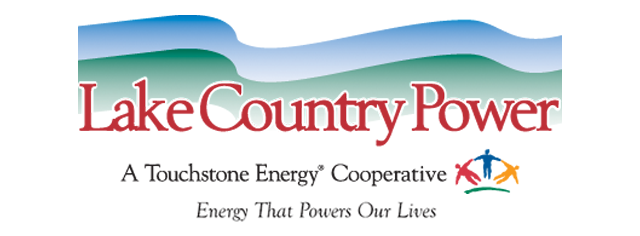Communities come in all shapes and sizes. Some are based on geographical proximity, and some are based on shared interests or hobbies.
“At Lake Country Power, we are a community of cooperative members who receive energy services from our local electric co-op,” said Greg Schulzetenberg, manager of community relations and marketing.
In fact, more than 44,000 members are part of Lake Country Power’s co-op community within the rural parts of northern Minnesota.
Every year during the month of October, more than 30,000 types of cooperatives across the U.S. celebrate National Co-op Month. It’s a time to reflect on all the aspects that set cooperatives apart from for-profit businesses, but more importantly, it’s a time to celebrate the power of co-op membership. Minnesota was the first state to declare an official Co-op Month proclamation in 1948.
Electric cooperatives are not-for-profit utilities that were built by the communities they serve. At Lake Country Power, the mission is to provide co-op members with safe, reliable, and affordable energy services.
“Beyond the business of electricity, our employees and directors are equally invested in our local community because we live here, too,” said Schulzetenberg. “That’s why we work hard to support local economic development projects, youth programs, scholarships, charitable giving initiatives and other programs that make our communities better places to call home.”
All co-ops, including Lake Country Power, are guided by seven cooperative principles that embody the values and spirit of the cooperative movement. These seven principles are a framework to help all co-ops navigate challenges and opportunities while remaining true to their purpose:
- Open and Voluntary Membership
- Democratic Member Control
- Members’ Economic Participation
- Autonomy and Independence
- Education, Training and Information
- Cooperation Among Cooperatives
- Concern for Community
For more information about electric cooperatives, visit www.electric.coop.





